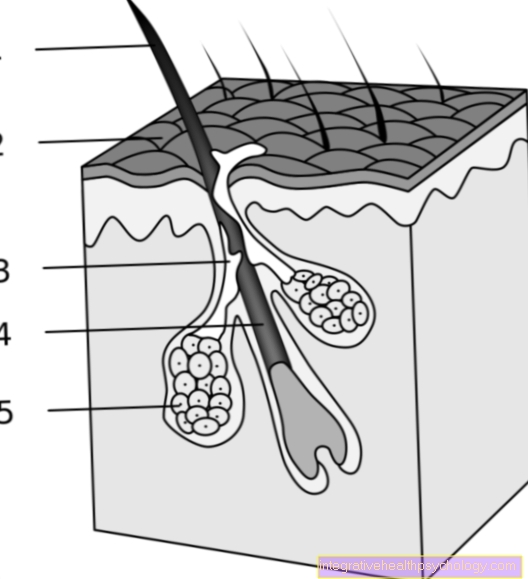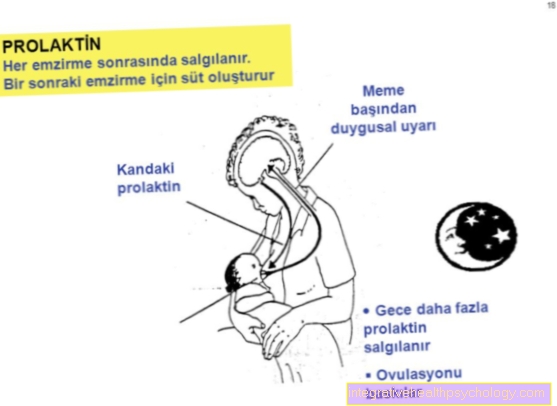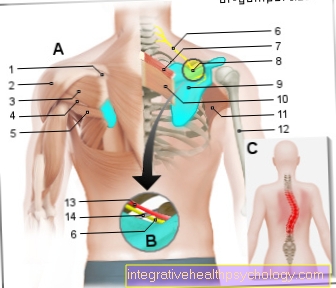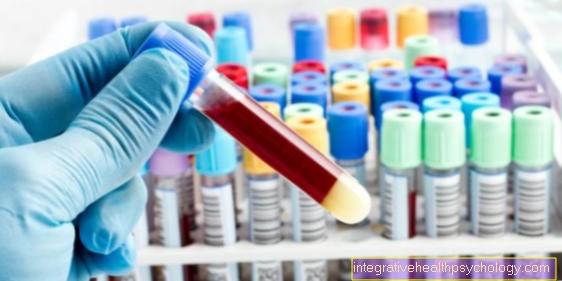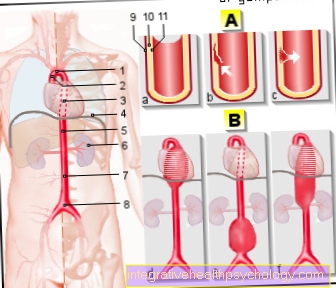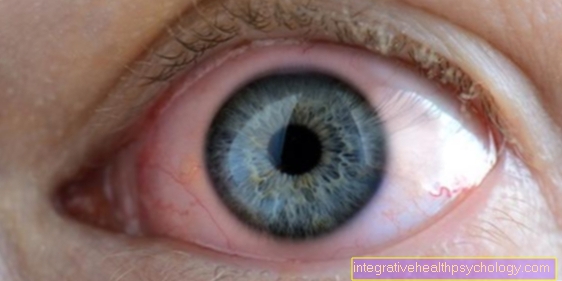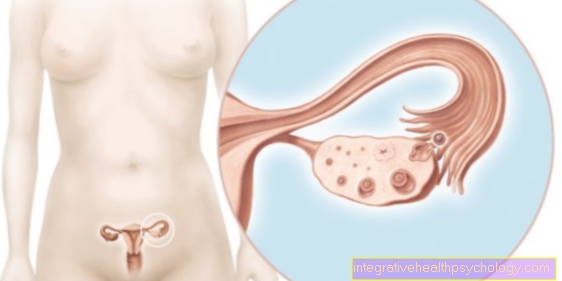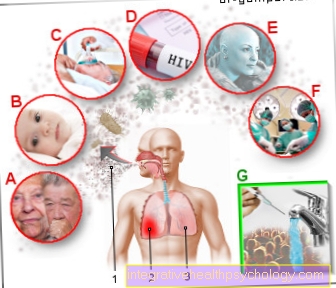Autoantibodies
What are autoantibodies?
Our body's own defense system continuously produces so-called antibodies, small proteins that support the immune cells in defending themselves against pathogens and cancer cells. Unfortunately, this system is not infallible and some people produce antibodies that classify our own body cells as alien and threatening.
This leads to the immune cells destroying these cells, leading to diseases such as rheumatoid arthritis or diabetes mellitus type 1. These antibodies, which are directed against the body's own cells, are called autoantibodies.

These autoantibodies exist
There are a number of known autoantibodies. The following is an overview of the typical autoantibodies and the diseases associated with them:
- Acetylcholine receptor antibodies (AChR-Ab) in myasthenia gravis
- Antimitochondrial antibodies (AMA) in primary biliary cirrhosis
- Antinuclear antibodies (ANA) in a variety of diseases (e.g. lupus erythematosus, scleroderma)
- Double-stranded DNA antibodies (anti-dsDNA) in systemic lupus erythematosus and other collagenoses
- Antiphospholipid antibodies (aPL) in antiphospholipid syndrome
- Anti-neutrophil cytoplasmic antibodies (c-ANCA) in Wegener's disease
- Anti-neutrophil perinuclear antibodies (pANCA) in microscopic polyangiitis and other diseases
- Rheumatoid Factor (RF) in Rheumatoid Arthritis
- Antithyroglobulin (Anti-Tg)
- Thyeroperoxidase antibodies (TPO-AK) and TSH receptor autoantibodies in autoimmune thyroid diseases.
Autoantibodies cause these symptoms
Autoantibodies can cause a variety of diseases almost anywhere in our body and therefore have a wide range of symptoms. What they all have in common is that functional tissue is destroyed by our body's own immune system. In any case, this leads to a functional limitation of the affected body region. In the case of joints, for example, to a painful restriction of movement (e.g. in the context of rheumatoid arthritis), in the case of organs to reduced performance (e.g. reduced thyroid hormone production in Hashimoto's thyroiditis or decreased insulin production by the pancreas in diabetes mellitus type I) or muscle weakness as in the Myasthenia gravis is the case.
Such autoimmune diseases are often associated with general fatigue, tiredness and weakness. Many patients show relative anemia (anemia). Some diseases can also be seen from the outside of the body, such as the painful, inflamed joints in rheumatism or the skin changes in lupus erythematosus.
Other diseases manifest themselves as organ deterioration or even organ failure. So you can see that the many different autoantibodies are the cause of many diseases which, depending on the damaged tissue, show up with very different symptoms.
Rheumatoid factor
The so-called rheumatoid factor (RF) is probably one of the best-known autoantibodies. It is used in the diagnosis of rheumatoid arthritis, a chronic inflammatory disease of the joints and often of the internal organs. Painful inflammations of the little finger joints, which are accompanied by severe morning stiffness, are typical.
In many patients there is also damage to the internal organs such as inflammation of the pleura or the pericardium. If rheumatoid arthritis is suspected, several parameters can be determined with a blood test, including the rheumatoid factor. If the rheumatoid factor appears in high concentration, this can be an indication of rheumatoid arthritis.
Unfortunately, the rheumatoid factor does not show a particularly high specificity, which means that it can also be increased in many healthy people or in chronic infections. Often it is only detectable in the course of the disease. Therefore, the additional determination of the anti-CCP antibody, which has a higher specificity, can be helpful.
However, a patient's physical symptoms are critical to a diagnosis of rheumatoid arthritis. For example, a positive rheumatoid factor without joint problems is not considered rheumatoid arthritis.
You might also be interested in the following article at this point: Rheumatism
ANA
The anti-nuclear antibodies, also called ANA can be increased in many autoimmune diseases, but they are particularly typical of the group of collagenoses. Collagenoses is a collective term for autoimmune diseases that mainly affect the connective tissue and are more common in women. Well-known representatives of this group are lupus erythematosus, scleroderma or Sjögren's syndrome.
In all of these diseases, the antinuclear antibodies can typically be detected in the blood, so they are not specific for a disease. With the help of more complex laboratory procedures, however, the autoantibodies can be differentiated even more clearly and typical patterns for the individual diseases can be found.
It is important to note that a positive ANA without any physical symptoms should not lead to therapy. On the other hand, the suspicion of collagenosis with typical symptoms should not be rejected because of negative autoantibodies. A positive ANA blood test can give an indication of a disease, but in no way lead to a diagnosis on its own.
ANCA
The anti-neutrophil cytoplasmic antibodies, for short ANCA, are typically increased in diseases of the group of vasculitides. In this group of autoimmune diseases, the immune system mistakenly attacks our body's own blood vessels. The diagnostic use of ANCA involves examining the blood for various types of this autoantibody.
The autoantibody cANCA is often increased in so-called granulomatosis with polyangiitis (Wegener's disease). This rheumatic disease manifests itself in the early stages through unspecific infections of the upper respiratory tract or the middle ear and can lead to life-threatening complications throughout the body.
The autoantibody pANCA, on the other hand, is increased in the so-called Churg-Strauss syndrome and microscopic polyangiitis. Both are diseases that primarily affect the small blood vessels and, depending on the region of the body, lead to a variety of symptoms up to and including organ failure.
Finally, atypical ANCA can also be detected. These can occur in many autoimmune diseases outside of vasculitis, such as in chronic inflammatory bowel diseases such as Crohn's disease or ulcerative colitis.
AMA
The antimitochondrial antibody, or AMA for short, is typical of the autoimmune disease primary biliary cholangitis (PBC). This is a chronic inflammation of the small bile ducts that are in the liver. In the course of the disease, this leads to a structural reorganization of the liver and ultimately to so-called liver cirrhosis, which is associated with a significantly deteriorated organ function and an increased risk of liver cancer.
The informative value of the AMA is relatively good and positive in approx. 90% of PBC patients. In addition, typical anti-nuclear autoantibodies (PBC-specific ANA) can often be detected. Unfortunately, the treatment of primary biliary cholangitis has been difficult to date, but the progression of the disease can be slowed down if it is diagnosed early.
Antiphospholipid Antibodies
The antiphospholipid antibodies are specific autoantibodies for the antiphospholipid syndrome. This autoimmune disease leads to abnormal blood clotting, which leads to the recurring formation of blood clots. These can lead to ulcers on the skin, but also interrupt the blood supply to the organs and thus damage them (e.g. in the event of a stroke).
In order to make the diagnosis of antiphospholipid syndrome, in addition to the appearance of blood clots, there must also be a positive antiphospholipid antibody in the blood.
Anti-acetylcholine receptor antibodies
The anti-acetylcholine receptor antibody (AChR-AK) is increased in the autoimmune disease myasthenia gravis. In this disease, the autoantibodies block the transmission of excitation between nerves and muscles - the result is an excessively rapid fatigue of the muscles, which requires a long period of rest to recover.
Typical initial symptoms are drooping eyelids, double vision, and difficulty swallowing and speaking. In addition to the common anti-acetylcholine receptor antibodies, there are other autoantibodies that can trigger the disease. Nowadays myasthenia gravis can be treated well.
TSH receptor antibodies
The TSH receptor antibody, too TRAK called, is especially typical of the thyroid disease Graves' disease. In this autoimmune disease, the autoantibodies activate the thyroid cells and stimulate them to increase hormone production. The result is a pronounced hyperthyroidism with symptoms such as palpitations, weight loss and excessive sweating.
The TSH receptor antibodies are found in over 90% of Graves' disease patients and are therefore very suitable for diagnosing hyperthyroidism. Another common autoantibody is the thyroid peroxidase antibody (TPO-AK).
Anti-CCP
The anti-CCP autoantibodies are often found in rheumatoid arthritis. This well-known autoimmune disease causes chronic inflammation of the joints, but it can also affect organs. The basic diagnosis of rheumatoid arthritis also includes an autoantibody test in the blood. The anti-CCP antibodies are positive in approx. 60% of the sick patients.
These autoantibodies are very specific, which means that almost all patients with a positive anti-CCP actually have rheumatoid arthritis. This is the advantage over the other typical autoantibody rheumatoid factor. It should be noted that not all rheumatoid arthritis has to have autoantibodies in the blood.
Double stranded DNA antibodies
The double-stranded DNA antibody (anti-dsDNA antibody) belongs to the group of antinuclear antibodies (ANA), which are typically elevated in autoimmune diseases of the connective tissue, the so-called collagenoses. The anti-dsDNA antibody is very specific for lupus erythematosus, an autoimmune disease that can affect connective tissue throughout the body.
This can range from skin changes to joint inflammation and kidney failure. The anti-dsDNA antibody can not only indicate lupus erythematosus, but also express the disease activity - the higher the autoantibody, the more active the relapsing disease is currently.
Endothelial cell antibodies
The endothelial cell antibodies are typical of the so-called Kawasaki syndrome. This autoimmune disease is caused by severe inflammation of medium-sized blood vessels and affects mainly children.
Typical symptoms are high fever, conjunctivitis, crimson lips and tongue, swelling of the lymph nodes in the neck and a rash all over the body. The endothelial cell antibodies can be detected in a blood test.

